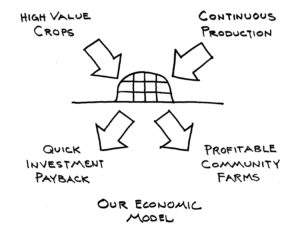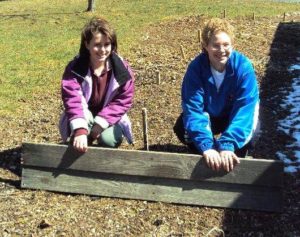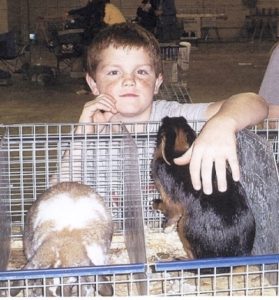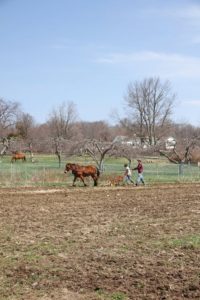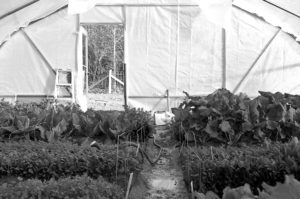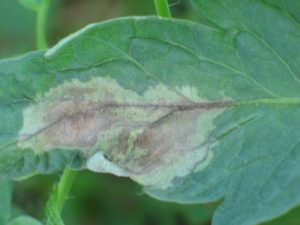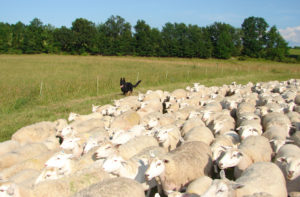Year: 2011
I’m an architect working with a team of scientists and engineers to develop a type of Controlled Environment Agriculture that we are calling ZEA2™. The name might look like an algebra formula to you, but what it stands for could revolutionize the sustainable farming movement. “Zero Energy Agriculture Squared” refers to a special greenhouse now…
By Megan Rosko, Age 18, Outsiders 4-H Club I have been completing garden projects for about ten years and will be taking my gardening skills to a higher level this year . . . with raised beds. Eventually, our whole family garden will be raised beds to make it easier for my mom to continue…
By Brandon Knoll, Age 14, and Blaine Knoll, Age 12, Country Bunch 4-H Club We are brothers and we raise, breed, and show rabbits in 4-H and ARBA (American Rabbit Breeders Association) shows. We raise Tans, Jersey Wooleys, Florida Whites, and Californians. We have learned a lot from raising and showing our rabbits. We have…
By Jenna Brokaw, Age 16, Loon Lake Raiders 4-H Club I grew up on a small horse and dog farm in Steuben County named Hazel View Farm. My grandparents own this farm, but my parents kept our animals on the farm because we lived on it. Since I was born I have been around horses.…
The purpose of this article is to help dairies that are interested in having their milk processed into salable dairy products. Off-farm processing will alleviate the considerable time, effort, and expense of creating a farmstead cheese house. This alternative method of dairy processing can have benefits such as: Off farm processing reduces capital to enter…
This will be the fifth and last in a series of essays penned by Bill Duesing and edited by Suzanne Duesing from the book Living on the Earth: Eclectic Essays for a Sustainable and Joyful Future. It is fitting that we have looped around from one year to the next and have begun another as…
Glynwood is a non-profit organization in New York’s Hudson Valley with a mission to save farming by strengthening farm communities and regional food systems. A crucial part of this mission is to link beginning farmers with experiences and resources to ensure their success, and to provide those opportunities if they do not exist elsewhere. Many…
Living in the Hudson Valley provides ample opportunities to “eat local.” On any given summer weekend, a visit to the farmers market can provide the makings for an entire meal or meals: produce, meats, breads, eggs, milk and cream, herbs, baked goods, and sometimes even a bottle of wine and flowers for the table. We…
Two unexpected finds of late blight on tomato in greenhouses in the northeast during April plus detections in seed potatoes expose an unfortunate but important fact – everyone growing tomatoes and potatoes in 2011 needs to expect and thus prepare for late blight occurrence in their plants. Preparation is critical since late blight is a…
The case has often been made that a diverse farm is less vulnerable if the market for one product, say pork, collapses. The other products produced on the farm will compensate for the lost income, so goes the theory. It is “hip” again to speak up for the diverse farm like we knew it from…


